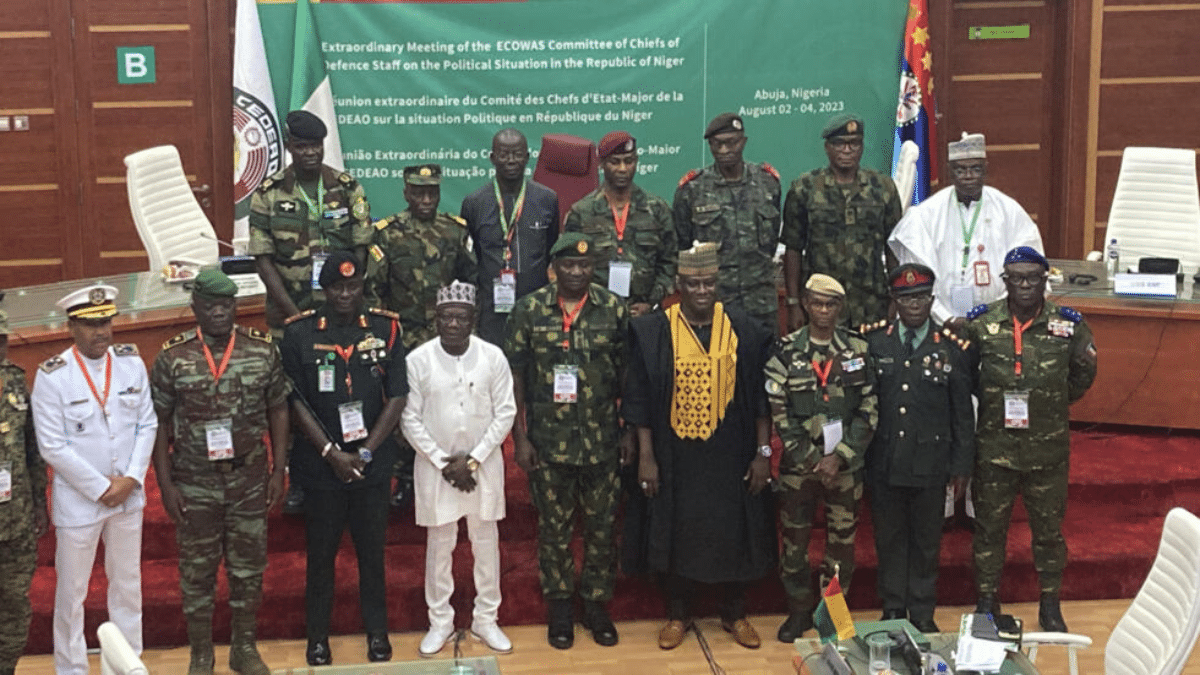International delegates are headed for Niger to meet with coup leaders.
The delegates headed for Niger are from the African Union, the Economic Community of West African States (ECOWAS), and the United Nations
The delegation is set to arrive in the Nigerien capital city of Niamey in the coming hours to hold talks with the rebels on behalf of the international community.
This is coming after the coup leaders disbanded the country's institutions and declared a curfew. The delegation is hoping to restore the country's democratic order and prevent further violence.
The Nigerian government has also said that it is prepared to send troops to Niger if necessary to help ECOWAS restore order.
Nigeria could provide more than half of the 25,000 troops that ECOWAS is planning to deploy. Senegal, Benin, and Côte d'Ivoire could also contribute troops to the operation.
The coup in Niger is the fifth military coup in the country since it gained independence from France in 1960. It is the first coup since 2010.
The coup leaders have said that they are committed to holding elections in the future, but the international community is sceptical.
The delegation's visit to Niger is a sign that the international community is serious about restoring democracy in the country. The delegation will be meeting with the coup leaders to discuss a roadmap for returning Niger to civilian rule.
The delegation will also be meeting with civil society groups and other stakeholders to get their input on the way forward.
The situation in Niger is tense, but the international community is hopeful that the delegation's visit will help to defuse the situation and pave the way for a return to democracy.
Backstory:
Niger is in turmoil after a military coup overthrew the democratically elected government of President Mohamed Bazoum.
The coup leaders, led by presidential guard commander General Abdourahamane Tchiani, have suspended the constitution, dissolved parliament, and closed the country's borders.
The coup comes at a time when Niger is facing a number of challenges, including a growing insurgency by Islamist militants, a severe drought, and a food crisis. The coup has further destabilized the country and raised fears that the insurgency could spread.
The international community condemned the coup and called for the restoration of civilian rule. The African Union has suspended Niger's membership and the Economic Community of West African States (ECOWAS) has imposed sanctions on the country.
The coup leaders have said that they will hold elections in the future, but the international community is sceptical. The coup has further damaged Niger's reputation as a stable democracy and could have a negative impact on the country's economy.
The situation in Niger is tense and uncertain. It is unclear what the long-term impact of the coup will be. However, the coup has demonstrated that Niger is still vulnerable to instability and that the country's security challenges are far from over.
The coup is a major setback for Niger and for the region. It is a reminder that the fight against terrorism and instability in the Sahel is far from over. The international community must work together to support Niger and other countries in the region to prevent further instability and violence.




















